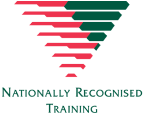
Schools Program
BSB30120 Certificate III in Business
Get the practical skills you need to work in a business or office environment with this entry-level business administration course in our Schools Program.
Prepare Yourself For a Rewarding Career in Business
The BSB30120 Certificate III in Business within our Schools Program is designed for students in years 10, 11 or 12 who are interested in equipping themselves with the skills and knowledge they need to successfully work in an office or business environment.
This qualification reflects the role of individuals who carry out a variety of business services including clerical, administrative or operational tasks that require technology or business skills. Graduates of this course will be ready to enter the workforce with key competencies and a comprehensive understanding of current business administration practices.
This course may be integrated with the school curriculum, to ensure you still receive your high school certificate upon graduation.
Study Pathways:

Course Outcomes
With course content that may be applied to a variety of industries and professions, the BSB30120 Certificate III in Business opens up a number of career pathways for students. This qualification equips you for roles such as:

Administration Officer
From scheduling important meetings to putting together weekly reports, administration officers are often the glue that holds an office together. You will also be responsible for tasks such as managing office supplies, updating databases, organising documents and policies, and printing/photocopying.

Administrative Assistant
Everything is in its place and a place for everything. As an administrative assistant or secretary, you will be tasked with filing and sorting documents. You will also be a key person in the organisation with responsibilities including scheduling appointments and supporting your colleagues with clerical jobs.

Personal Assistant
Working closely with a senior member of staff, you will play an essential role in ensuring all emails, phone calls, meetings, travel plans, and appointments are scheduled appropriately and run smoothly.
Course Overview
Delivery Structure
Studying the Certificate III in Business with Foundation Education is flexible and you can tailor it to suit your needs. The course is broken down into two parts:
1. THEORETICAL
The theoretical component of this course is delivered online and submitted through our Learning Management System. 13 course units to complete online, at your own pace.
2. WORK PLACEMENT
Where required, we may assist you in identifying work placement options. Check state or territory requirements.
Units - VIC
The following course units are available in Victoria.
Units - Other States and Territories
The following course units are available in other States and Territories.

Want More Info?
Download our free Schools Brochure for more information or call 1300 959 540.
Proud member of

Funding
© Foundation Education | RTO Number 22557
